Bird Care: Essential Tips for Happy Healthy Feathered birds
Birds are captivating creatures, we will cover some essential tips for bird care that will help you keep your feathered companions in top condition.
Bird care can be a rewarding and fulfilling experience, but it also comes with a lot of responsibility. Proper bird care is essential for ensuring that your feathered birds are happy and healthy. From providing a nutritious diet to creating a stimulating environment, there are many factors to consider when caring for a bird. Whether you’re a first-time bird owner or a seasoned avian enthusiast, these tips will help you create a nurturing environment for your birds to thrive. By following these guidelines, you can ensure that your birds are healthy, happy, and well-cared for.
- Common mistakes in bird care
- Choosing the right cage and habitat
- Proper diet and nutrition for birds
- Important factors for creating a bird-friendly environment
- Tips for bonding with your bird
- Socialization and mental stimulation
- Regular health check-ups and grooming for birds
- Common health issues and warning signs to look out for
Common mistakes in bird care
When it comes to caring for pet birds, there are several common mistakes that bird owners often make without realizing the potential consequences for their feathered birds.

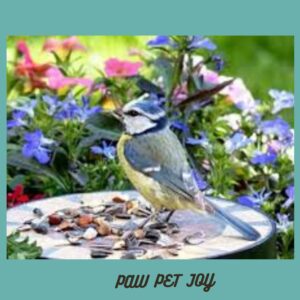

Providing suitable diet: One of the most common mistakes is not providing a suitable diet for your bird. Just like humans, birds need a balanced diet to stay healthy and happy. Feeding your bird only seeds or a poor quality seed mix can lead to nutritional deficiencies and health problems down the road. It’s important to research your bird’s specific dietary needs and provide a variety of fresh fruits, vegetables, and other nutritious foods to keep them in optimal health.
Mental and physical stimulation: Another common mistake in bird care is not providing enough mental and physical stimulation for your bird. Birds are highly intelligent and social creatures that require daily interaction and stimulation to prevent boredom and behavioral issues. Lack of mental and physical stimulation can lead to feather plucking, excessive vocalization, and even aggression. It’s important to provide your bird with a variety of toys, puzzles, and playtime outside of their cage to keep their minds and bodies active and engaged.
Hygiene and grooming: One mistake that many bird owners make is neglecting their bird’s hygiene and grooming needs. It’s important to regularly clean your bird’s cage and provide them with fresh water and bathing opportunities. Birds also need regular nail trims and beak maintenance to prevent overgrowth and potential injury. Ignoring your bird’s grooming needs can lead to health problems and discomfort for your feathered friend. Make sure to establish a grooming routine and consult with a veterinarian or avian specialist if you’re unsure of how to properly groom your bird.
Safe and comfortable environment: Another common mistake in bird care is not providing a safe and comfortable environment for your bird. Birds are sensitive to their surroundings and can be easily stressed by loud noises, sudden movements, or other environmental stressors. It’s important to place your bird’s cage in a quiet and draft-free area of your home, away from harmful fumes, smoke, and extreme temperatures. Providing your bird with a safe and secure environment will help them feel comfortable and at ease in their new surroundings.
Regular veterinary care: one of the most critical mistakes in bird care is neglecting your bird’s regular veterinary care. Just like any other pet, birds require routine check-ups and preventative care to maintain their health and well-being. Regular vet visits can help detect and treat any potential health issues early on, preventing more serious problems from developing. It’s essential to find an avian veterinarian who is experienced in bird care and schedule regular check-ups for your feathered friend.
Choosing the right cage and habitat Bird care
When it comes to providing a happy and healthy environment for your feathered birds, choosing the right cage and habitat is essential. Birds are highly intelligent creatures that require plenty of space to move around, stretch their wings, and explore their surroundings.

When selecting a cage for your bird, size is key. The cage should be large enough to accommodate your bird’s specific needs and allow them to move freely. As a general rule of thumb, the cage should be at least twice the wingspan of your bird and tall enough to allow them to fly up and down without hitting their wings on the top or bottom of the cage.

In addition to size, the shape of the cage is also important. Birds are social creatures that enjoy interacting with their environment, so choosing a cage with horizontal bars that allow them to climb and perch is ideal. Avoid cages with round or curved edges, as birds may have difficulty perching on these surfaces.
Material is another factor to consider when selecting a cage for your bird. Stainless steel cages are the most durable and easy to clean, while powder-coated cages are also a popular option. Avoid cages made of toxic materials such as lead or zinc, as these can be harmful to your bird’s health.
Placement of the cage is also important for your bird’s well-being. Place the cage in a quiet area away from drafts, direct sunlight, and extreme temperatures. Birds are sensitive to changes in their environment, so it’s important to provide them with a stable and comfortable living space.
Once you have selected the right cage for your bird, it’s time to create a habitat that simulates their natural environment. Provide a variety of perches, toys, and accessories for your bird to explore and interact with. Natural branches, ropes, and ladders are great options for perches, while toys such as bells, mirrors, and puzzle feeders can help keep your bird mentally stimulated.
In addition to perches and toys, it’s important to provide your bird with a comfortable and safe bedding material. Newspaper, paper towels, or corn cob bedding are all suitable options for lining the bottom of the cage. Avoid using sand or gravel as these can be harmful if ingested by your bird.
Finally, remember to clean your bird’s cage regularly to prevent the buildup of bacteria and mold. Replace bedding, food, and water daily, and deep clean the cage at least once a week. This will help ensure that your bird’s habitat remains clean and hygienic, promoting their overall health and well-being.
By choosing the right cage and habitat for your feathered bird, you can provide them with a happy and healthy living environment where they can thrive and flourish. Remember to consider the size, shape, material, and placement of the cage, as well as provide a variety of perches, toys, and bedding materials to keep your bird entertained and comfortable. With proper care and attention to their living space, your bird will lead a long and fulfilling life as a cherished member of your family.
Proper diet and nutrition for birds
Proper diet and nutrition are essential for keeping your feathered bird happy and healthy. It’s important to provide a variety of foods to meet all of your bird’s nutritional needs.
A high-quality bird seed mix should be the foundation of your bird’s diet. Look for a mix that contains a variety of seeds, grains, and nuts. This will provide your bird with essential vitamins, minerals, and fats. You can also add in some fresh fruits and vegetables to supplement their seed mix. Be sure to wash any fruits or vegetables thoroughly to remove any pesticides or chemicals.
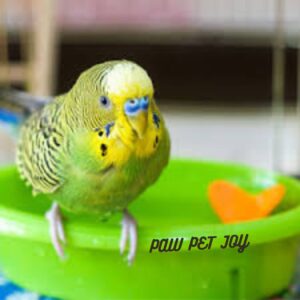

In addition to seed mixes and fresh produce, it’s important to provide your bird with a source of protein. This can come from sources such as boiled eggs, cooked beans, or lean cooked meats. Protein is crucial for your bird’s growth and development, as well as for maintaining a healthy immune system.
Another key component of a bird’s diet is calcium. Calcium is essential for proper bone development and egg production in female birds. You can provide calcium by offering cuttlebones, mineral blocks, or even crushed eggshells.
It’s also important to offer your bird plenty of fresh, clean water. Make sure to change their water daily to prevent the growth of bacteria. Birds can be picky about their water, so offering them a variety of water sources, such as a water bottle and a dish, can help to ensure they stay hydrated.
When it comes to feeding your bird, it’s important to keep in mind their individual preferences and dietary needs. Some birds may prefer certain foods over others, so take note of what your bird enjoys and try to incorporate those foods into their diet. Additionally, some birds may have specific dietary restrictions or sensitivities, so it’s important to consult with a veterinarian or avian nutritionist if you have any concerns about your bird’s diet.
Finally, it’s important to monitor your bird’s weight and overall health. Birds can be prone to obesity if they are overfed or given too many high-fat treats. On the other hand, birds can become malnourished if they are not getting the proper nutrients in their diet. Regular check-ups with a veterinarian can help ensure that your bird is maintaining a healthy weight and receiving the proper nutrition.
Important factors for creating a bird-friendly environment Bird care
There are several important factors to consider when setting up your bird’s living space to ensure they thrive in their surroundings.
It’s crucial to provide your bird with a spacious and comfortable cage or aviary. The size of the enclosure will depend on the type of bird you have, but in general, bigger is better. Birds need room to stretch their wings, fly around, and explore their surroundings. Make sure the cage is sturdy and secure, with no gaps or openings that could potentially harm your bird.


A clean environment is also key to your bird’s well-being. Regularly clean and disinfect the cage, including perches, toys, and food and water dishes. Birds are sensitive to their surroundings, so keeping their living space clean will help prevent illness and ensure they stay healthy.
Providing a variety of perches and toys is essential for keeping your bird mentally and physically stimulated. Natural branches of varying sizes and textures can help keep your bird’s feet healthy and provide them with opportunities to exercise. Toys such as bells, mirrors, and chewable toys can keep your bird entertained and prevent boredom.
Another important factor in creating a bird-friendly environment is providing a balanced diet. Different types of birds have different dietary needs, so it’s essential to research what foods are best for your specific bird species. Fresh fruits and vegetables, seeds, pellets, and the occasional treat can all be part of a healthy diet for your feathered friend.
Proper lighting is also crucial for your bird’s well-being. Birds need exposure to natural sunlight to help regulate their sleep patterns and maintain healthy levels of Vitamin D. If your bird’s cage is indoors, consider placing it near a window to allow for natural light exposure. You can also invest in full-spectrum lighting to mimic natural sunlight if needed.
Maintaining a comfortable temperature and humidity level in your bird’s environment is another important consideration. Birds are sensitive to abrupt changes in temperature, so it’s crucial to keep their living space at a consistent and comfortable level. Providing a source of fresh water for drinking and bathing can also help regulate humidity levels and keep your bird healthy.
Tips for bonding with your bird
One of the most important aspects of caring for your feathered bird is establishing a strong bond with them. Bonding with your bird not only enhances your relationship but also ensures their emotional well-being and happiness. Here are some essential tips for bonding with your bird:


Spend time: it’s crucial to spend quality time with your bird each day. Birds are social creatures and thrive on interaction with their caregivers. Make time to play with and talk to your bird, as this will help strengthen your bond. Whether its cuddle time, training sessions, or just hanging out together, these interactions are vital for building trust and companionship.
Understand body language and vocalizations: Another important aspect of bonding with your bird is to learn to understand their body language and vocalizations. Just like humans, birds have their own ways of communicating their feelings and needs. By paying attention to your bird’s cues, you can better respond to their needs and create a deeper connection with them. For example, if your bird fluffs up their feathers or makes certain sounds, they may be feeling happy or anxious. Being able to interpret these signals will help you cater to your bird’s emotional needs and strengthen your bond.
Establish routine: In addition to spending time with your bird and understanding their cues, it’s also essential to establish a routine. Birds thrive on predictability and consistency, so creating a daily schedule for feeding, playtime, and sleep will help your bird feel secure and comfortable. Routine not only provides structure for your bird but also fosters a sense of stability and trust in your relationship.
Enhance bond: incorporating positive reinforcement in your interactions with your bird can significantly enhance your bond. Rewarding good behavior with treats, praise, or physical affection helps reinforce trust and encourages your bird to engage in positive interactions. Positive reinforcement also aids in training your bird, deepening your connection as you work together towards common goals Bird care .
Environment: create a safe and stimulating environment for your bird to flourish. Provide ample toys, perches, and opportunities for mental and physical stimulation to keep your bird’s mind active and prevent boredom. A happy and enriched bird is more likely to bond with you and feel content in their surroundings.
Socialization and mental stimulation Bird care
Birds are highly social creatures and require interaction with you and other birds to thrive. One of the best ways to socialize your bird is by spending quality time with them every day. Whether it’s talking to them, playing games, or simply sitting nearby, your presence will make a world of difference to your bird’s well-being.
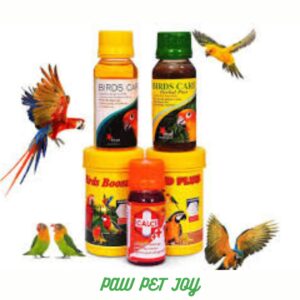
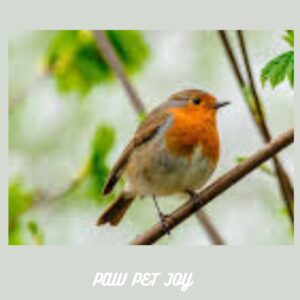
Birds also benefit from interaction with other birds. If you have multiple birds, make sure they have opportunities to socialize and play together. If you only have one bird, consider arranging playdates with friends who have birds or joining a bird club so your bird can meet others of its kind.
In addition to socialization, mental stimulation is vital for keeping your bird’s mind active and engaged. Birds are highly intelligent animals and need mental stimulation to prevent boredom and behavioral problems. Provide your bird with a variety of toys, puzzles, and activities to keep their mind sharp and prevent them from getting bored.
Rotate your bird’s toys regularly to keep things fresh and exciting. Offer toys that encourage natural behaviors such as foraging, chewing, and climbing. You can also create DIY toys using household items like paper towel rolls, cardboard boxes, and untreated wood blocks.
Another great way to provide mental stimulation for your bird is through training. Birds are highly trainable animals and love to learn new behaviors and tricks. Teach your bird basic commands like stepping up onto your hand or waving hello. You can also train your bird to do fun tricks like ringing a bell or turning around in a circle.
Engaging your bird in training sessions not only provides mental stimulation but also strengthens the bond between you and your feathered bird. Use positive reinforcement techniques such as treats, praise, and rewards to encourage your bird to learn new behaviors
Regular health check-ups and grooming for birds
It’s important to take your feathered bird to see a avian veterinarian at least once a year for a check-up. During this visit, the vet will examine your bird’s feathers, beak, nails, and overall body condition to make sure everything is in good shape. They may also recommend tests for common bird illnesses, such as psittacosis or avian influenza, especially if your bird shows any signs of illness.
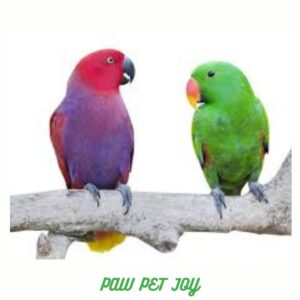

Aside from annual check-ups, it’s also important to keep an eye on your bird’s overall health on a regular basis. This means monitoring their weight, as sudden weight loss or gain can be a sign of an underlying health issue. You should also pay attention to their droppings, as changes in color, consistency, or frequency can indicate a problem. It’s a good idea to keep a log of your bird’s weight and droppings so you can easily spot any changes over time.
In addition to health check-ups, grooming is an essential part of bird care. Birds groom themselves by preening their feathers and sharpening their beaks on perches, but they may still need a little help from their human companions. For larger birds, such as parrots, you may need to trim their nails regularly to prevent them from becoming overgrown and causing discomfort or injury. You can also file down any sharp edges on their beak to prevent them from becoming too long and causing problems with eating or grooming.
Another important aspect of grooming is bathing. Birds naturally bathe in the wild to keep their feathers clean and in good condition, so it’s important to provide them with opportunities to do so in captivity. You can offer your bird a shallow dish of warm water for them to splash around in, or you can mist them with a spray bottle. Some birds may even enjoy taking a shower with their human companions, but be sure to use lukewarm water and avoid getting water in their eyes or ears Bird care .
Regular grooming not only helps your bird look their best, but it also promotes good health. Dirty feathers can lead to skin irritation and infections, while overgrown nails or beaks can cause discomfort and affect your bird’s ability to eat or groom themselves properly. By keeping up with grooming tasks, you can help your bird stay happy and healthy for years to come Bird care .
Common health issues and warning signs to look out for
One common health issue that birds may face is respiratory problems. This can manifest as coughing, sneezing, nasal discharge, or difficulty breathing. These symptoms could be a sign of an infection, allergies, or even something as serious as respiratory diseases like Aspergillosis or Chlamydiosis. It’s important to monitor your bird’s breathing patterns and seek veterinary care if you notice any concerning symptoms.
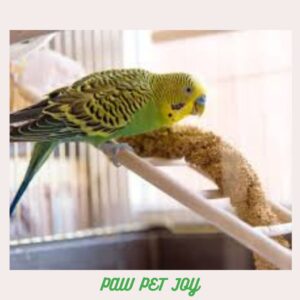

Another health concern for birds is gastrointestinal issues. Birds are prone to digestive problems such as diarrhea, vomiting, or changes in appetite. These symptoms could indicate infections, parasites, or even underlying conditions like liver disease. Keeping an eye on your bird’s eating habits and stool consistency can help you catch any issues early on.
Feather plucking is a behavior that can indicate both physical and psychological problems in birds. Stress, boredom, nutritional deficiencies, and skin irritations can all contribute to feather plucking. If you notice your bird excessively preening or pulling out feathers, it’s important to address the underlying cause to prevent further harm to your bird’s well-being.
Weight loss or gain can also be a warning sign of health issues in birds. Sudden changes in weight could be a sign of metabolic disorders, malnutrition, or even infections. Monitoring your bird’s weight regularly can help you track any changes and seek veterinary advice if needed Bird care
Changes in behavior can also be a red flag for potential health problems in birds. Aggression, lethargy, or abnormal vocalizations can all indicate that something is not right with your feathered friend. Paying attention to your bird’s usual demeanor and seeking help if you notice any concerning changes can help address any underlying health issues Bird care .
- What should I include in my bird’s diet?
A balanced bird diet typically includes high-quality pellets, a mix of seeds, fresh fruits, and vegetables. Avoid sugary and fatty foods and always provide fresh, clean water.
- How often should I clean my bird’s cage?
The cage should be cleaned daily to remove droppings and leftover food. A more thorough cleaning should be done weekly, including washing toys and perches.
- How can I tell if my bird is sick?
Signs of illness in birds include changes in droppings, loss of appetite, ruffled feathers, and lethargy. If you notice any of these symptoms, consult an avian veterinarian.
- How much interaction does my bird need?
Birds are social animals and require daily interaction. Spend time talking to, playing with, and training your bird to keep it happy and well-adjusted.
- What should I do if my bird is biting or acting aggressively?
Aggressive behavior can be a sign of fear or discomfort. Ensure your bird feels safe, provide enrichment, and consult with an avian behaviorist if the issue persists.
Conclusion:
Taking care of your feathered birds is a lot of responsibility, but with the right knowledge and commitment, you can ensure that they live happy and healthy lives. By providing them with proper nutrition, a clean living environment, regular vet check-ups, and plenty of love and attention, you can help your birds thrive and bring even more joy to your life. Remember, these beautiful creatures rely on us for their well-being, so let’s do our best to keep them happy and healthy Bird care .
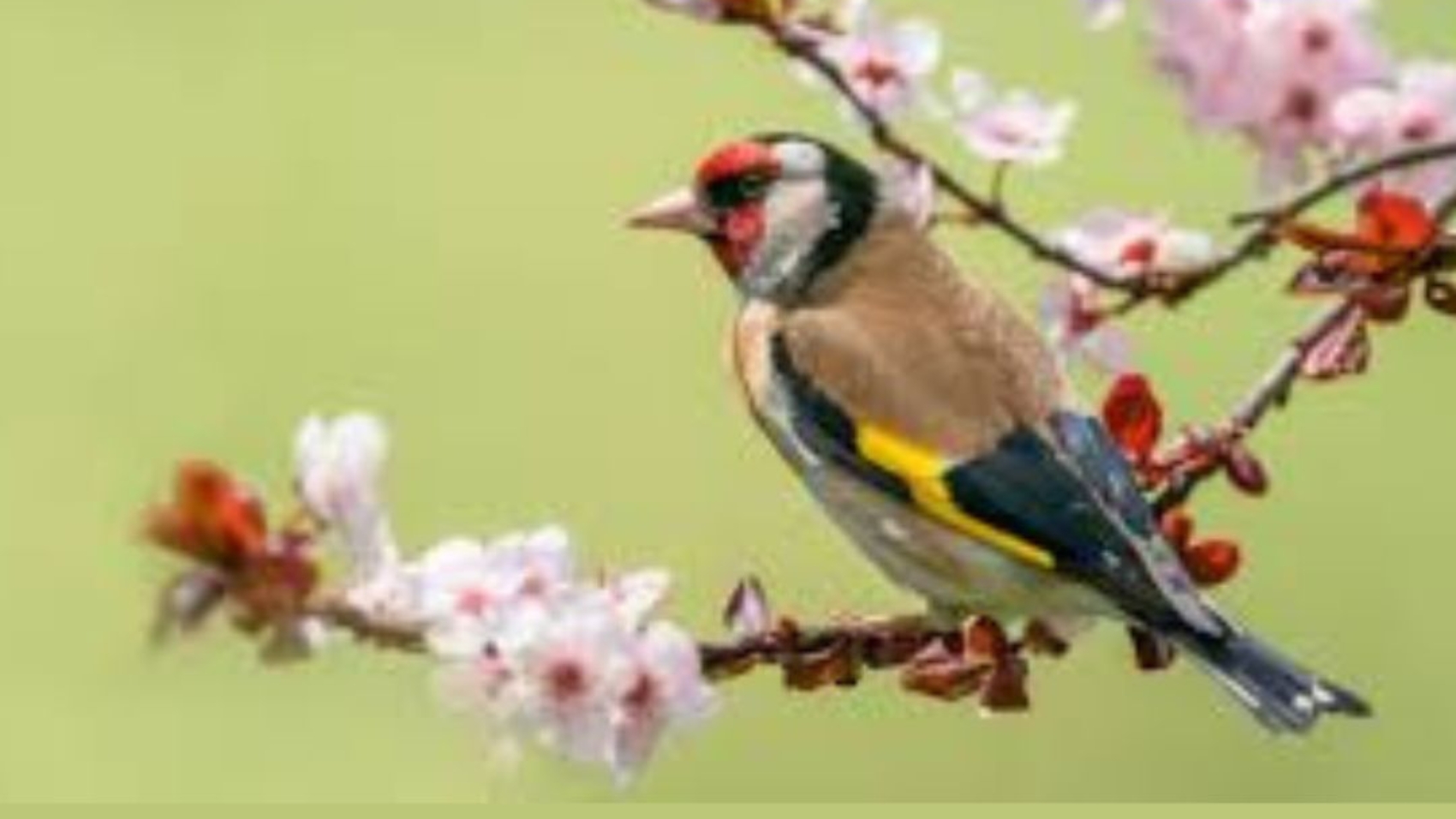
[…] explore everything you need to know about the Pet Joy student discount, how to maximize your savings, and why this discount is a must-have for students with […]
أنابيب CPVC في العراق في مصنع إيليت بايب في العراق، تُصنع أنابيب CPVC لدينا لتوفير مقاومة فائقة للحرارة والتآكل، مما يجعلها مثالية لمجموعة متنوعة من التطبيقات الصناعية والسكنية. تضمن عمليات التصنيع المتقدمة لدينا أن كل أنبوب CPVC يلبي أعلى معايير الجودة، ويقدم أداءً وموثوقية طويلين. كواحدة من أفضل وأبرز شركات تصنيع الأنابيب في العراق، تفخر مصنع إيليت بايب بتقديم منتجات تتفوق على تحديات البيئات الصعبة. استكشف مجموعة أنابيب CPVC لدينا والمزيد بزيارة elitepipeiraq.com.